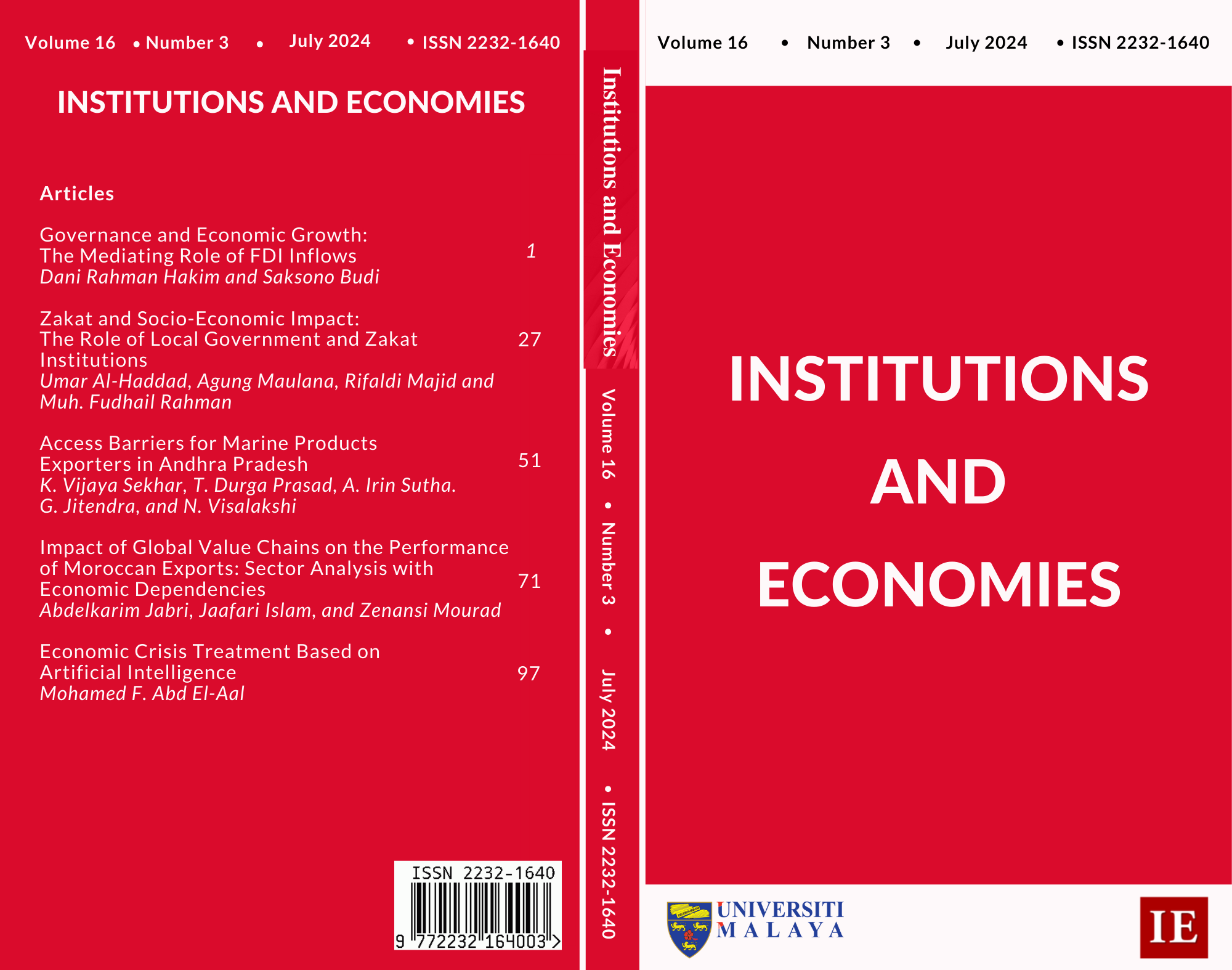Economic Crisis Treatment Based on Artificial Intelligence
Main Article Content
Abstract
Abstract: There are many possible causes of an economic crisis—a financial downturn,
a banking meltdown, political strife (e.g., the Russia-Ukraine war), or a health-related
catastrophe (e.g., Covid-19). Some of these crises are expected, while others are “bolts
from the sky.” However, what is certain is that all these crises, whatever their cause,
have a negative impact on global gross domestic product (GDP). If we can identify the
components of output that have the most impact in an economic crisis, we might be able
to mitigate its effects. Therefore, this paper uses machine learning algorithms to determine
how the components of expenditure and sectoral value-added approach impact global
GDP. The gradient boosting algorithm is the most accurate model for predicting and
determining the impact of independent variables on a dependent variable. The results
indicate that government spending has the largest effect on global GDP, accounting for
68.3% of the impact. The economic sector with the most impact on global GDP is the
service sector, which affects global output by 42.3%, followed by the agricultural sector
at 30.2%. Thus, stimulating government spending and the service sector may reduce the
negative effects of an economic crisis.
Downloads
Article Details
Submission of a manuscript implies: that the work described is original, has not been published before (except in the form of an abstract or as part of a published lecture, review, or thesis); that is not under consideration for publication elsewhere; that its publication has been approved by all co-authors, if any, as well as tacitly or explicitly by the responsible authorities at the institution where the work was carried out. Transfer of copyright to the University of Malaya becomes effective if and when the article is accepted for publication. The copyright covers the exclusive right to reproduce and distribute the article, including reprints, translations, photographic reproductions, microform, electronic form (offline and online) or other reproductions of similar nature.
An author may self-archive the English language version of his/her article on his/her own website and his/her institutions repository; however he/she may not use the publishers PDF version which is posted on www.ijie.um.edu.my. Furthermore, the author may only post his/her version, provided acknowledgement is given to the original source of publication and a link must be accompanied by the following text: The original publication is available at www.ijie.um.edu.my.
All articles published in this journal are protected by copyright, which covers the exclusive rights to reproduce and redistribute the article (e.g. as offprint), as well as all translation rights. No material published in this journal may be reproduced photographically or stored on microfilm, in electronic database, video disks, etc., without first obtaining written permission from the publishers. The use of general descriptive names, trade names, trademarks, etc., in this publication, even if not specifically identified, does not imply that these names are not protected by the relevant laws and regulations.
The copyright owners consent does not include copying for general distribution, promotion, new works, or resale. In these cases, specific written permission must first be obtained from the publishers.

